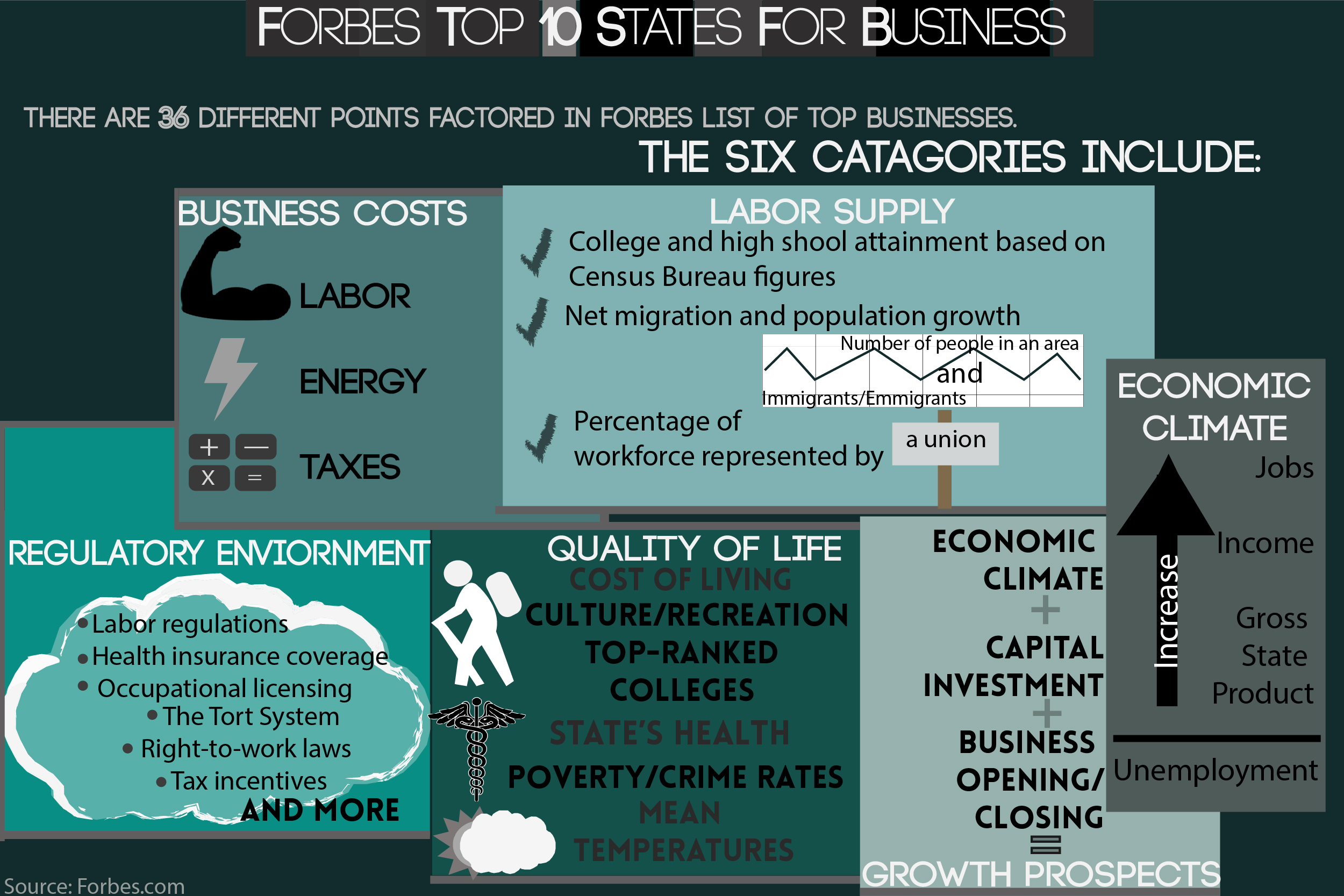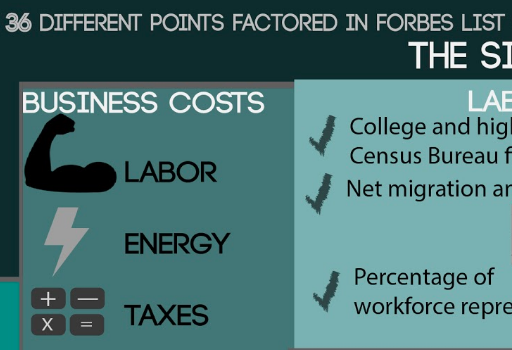
Forbes Magazine ranked Minnesota as the ninth-best business state in its annual report released Nov. 12, falling one spot from 2013’s eighth-place ranking.
The magazine bases its rankings off of six categories that contribute to business health including business costs, labor supply, regulatory environment, economic climate, growth prospects and quality of life. Minnesota’s highest ranking was in quality of life, where the state finished in second place, and economic climate, ranking seventh in the category.
Opus College of Business Dean Stefanie Lenway said the state strives to support business across a spectrum of industries.
“What contributes to a strong state economy is companies in different industries so there’s diversification,” Lenway said. “We’ve got some agricultural. We’ve got some manufacturing. We’ve got some services, and if one sector is hurting, another one fills in.”
Overall, Minnesota finished behind top-placing states Utah, North Dakota and North Carolina. Near the bottom of the list were West Virginia, Maine and Mississippi at No. 50.
Junior Reyna Meinhardt is a marketing major and said the ranking makes sense because Minnesota serves as the hub for many successful companies.
“I think it’s because we have a lot of Fortune 500 companies,” Meinhardt said. “We have General Mills, so I think there’s a lot of opportunities for people.”
Lenway also mentioned the 15 Fortune 500 companies based in Minnesota and said it is one of the reasons Opus students to stay in the state after graduation.
“We’ve got thousands of middle market companies, and we’ve got a very interesting startup culture that’s growing,” Lenway said. “I’ll tell you, students are smart. They know where their communities are.”
Forbes credited companies such as Target, U.S. Bancorp, General Mills, 3M and Medtronic – all Twin Cities-based companies – for the state’s strong business economy. Minnesota’s total gross state product amounted to $312 billion.
According to Lenway, a rank like this also shows the rest of the country how influential Minnesota can be to the future of business.
Forbes also reported that Minnesota holds the fourth-highest high school graduation rate, with 92.4 percent. Lenway said education is a key contributor to any successful business economy.
“The way I think about it is that education contributes to productivity. Productivity contributes to wealth, and then once you have some wealth, you can invest in social policy and public policy, and the quality of life goes up,” Lenway said. “It’s built on a strong foundation, but it comes back to education.”
With a strong business economy and strong education, Lenway said the future for both the state and Opus is bright, with St. Thomas graduates helping to make a difference.
“A lot of our students stay in the Twin Cities. So when you think about it, St. Thomas alumni are driving this economic growth,” Lenway said.
Lauren Smith can be reached at smit7607@stthomas.edu.

